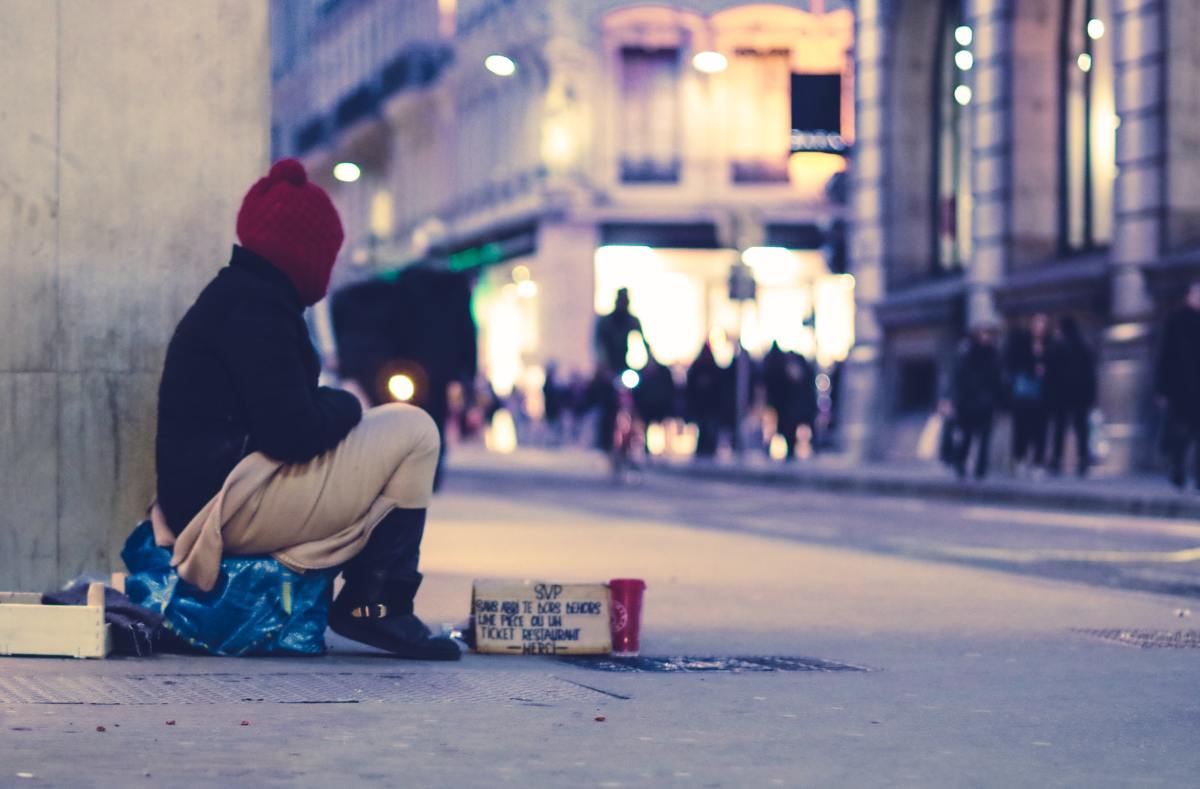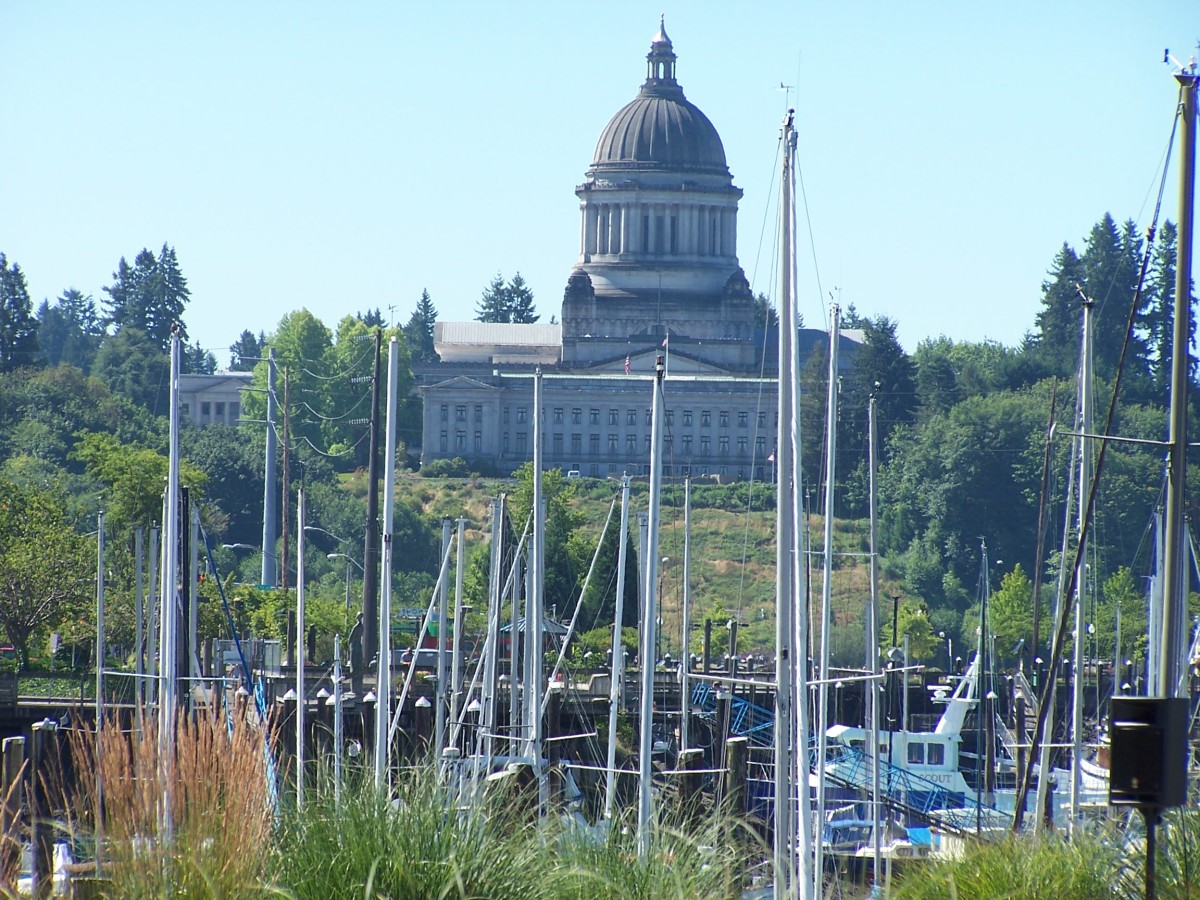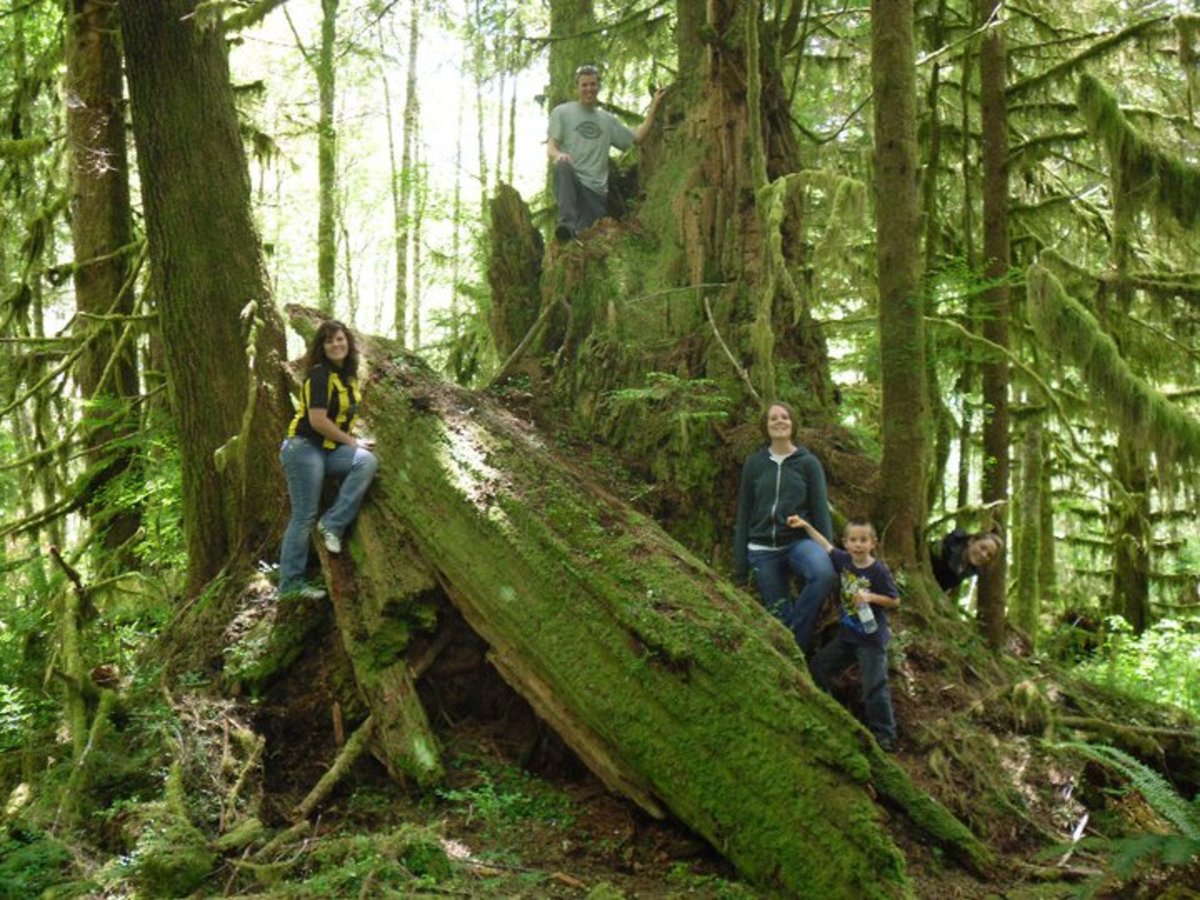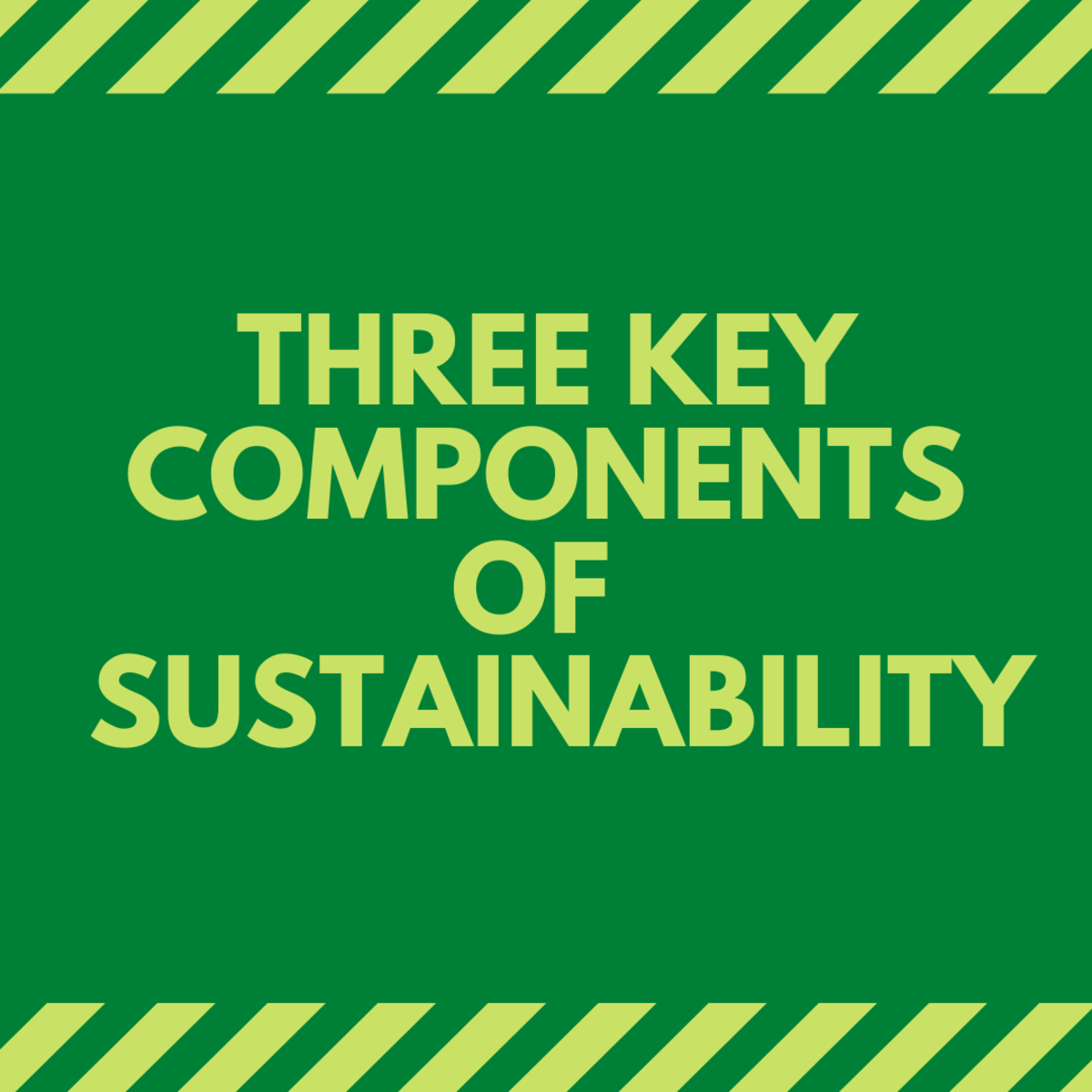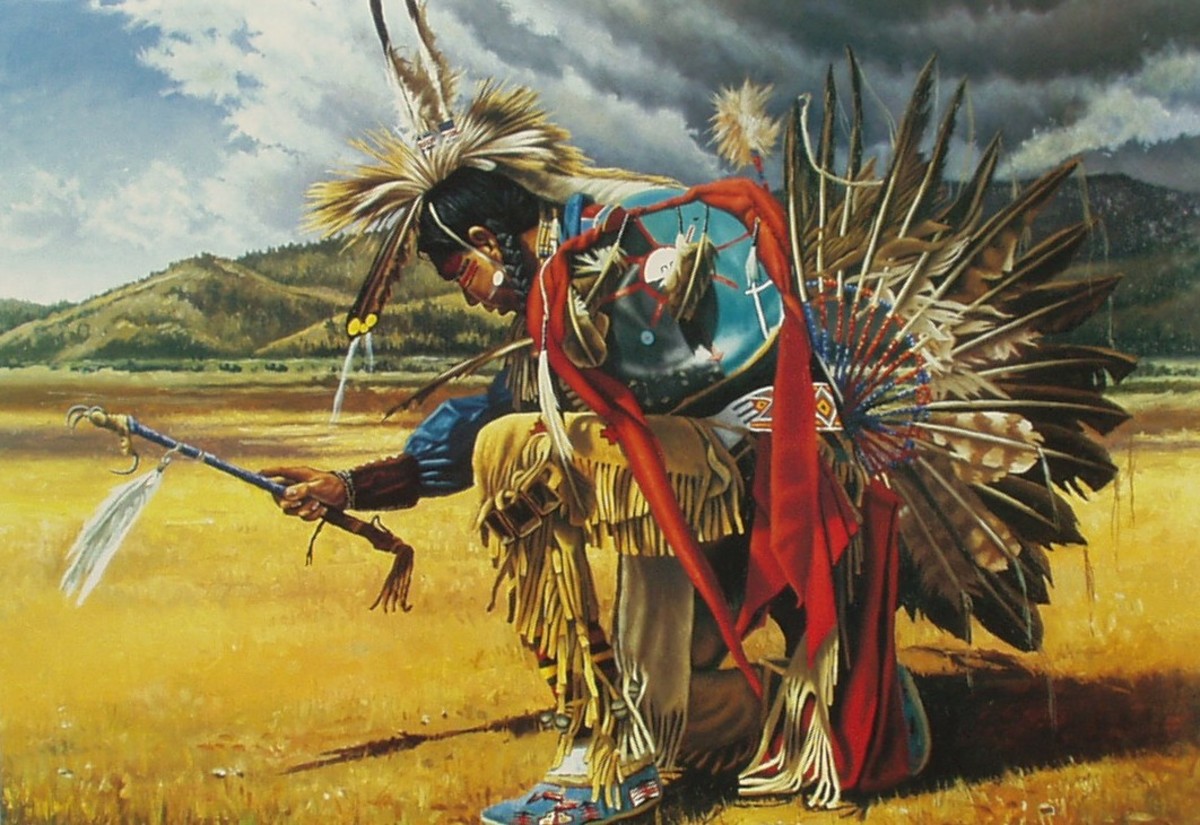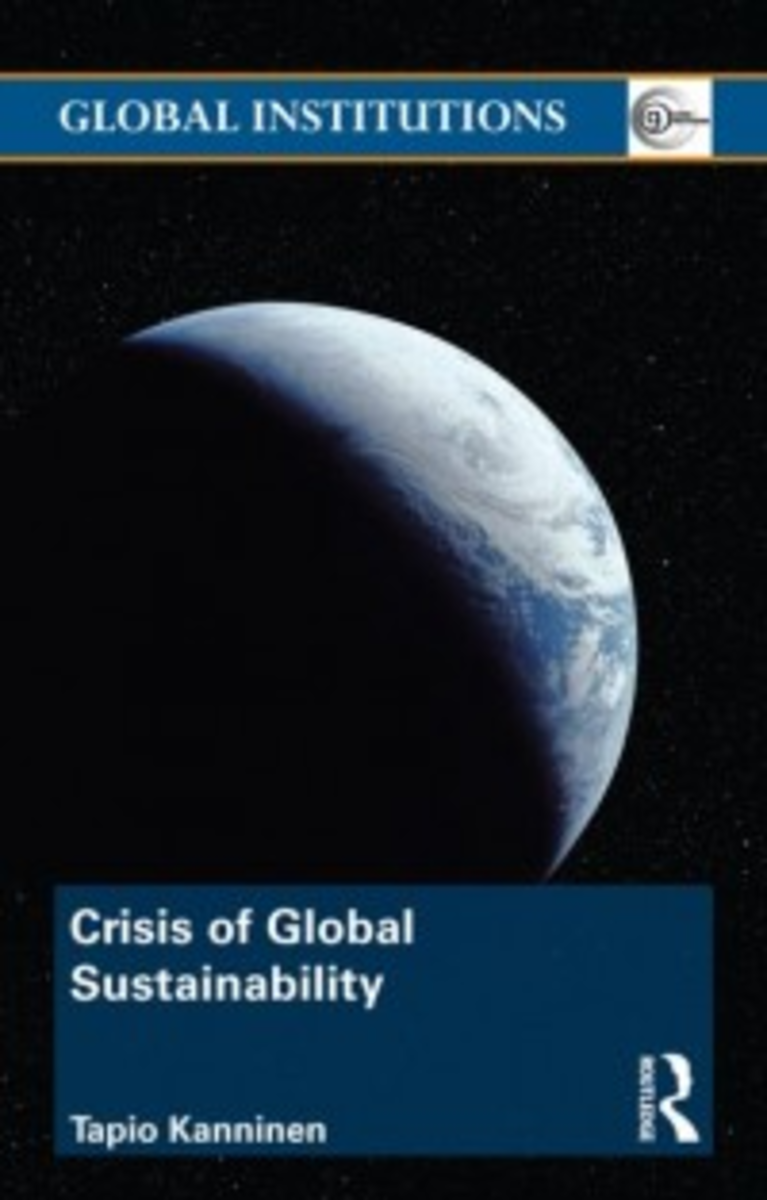How a College Changed a City: The Story of The Evergreen State College and Olympia, Washington
A Look Back
In 1970 this writer had just graduated from Seattle University in Seattle, Washington. I was born and raised in Tacoma, Washington, and my only real interaction with Olympia, the capital of the state, was when I drove through it on the way to Portland, Oregon.
What I knew of Olympia can be quickly summarized:
- It was the capital of the state
- It was a fairly small capital city with only 23,111 citizens at that time
- It was the home of Olympia Brewing Company
- It was a fairly dirty and old city, with sawmills and paper mills dotting its shoreline.
That was then.
Today, Olympia’s population is 47,000 people. At first glance, it appears much the same, although the paper mills, sawmills, and brewery are gone. From the freeway, driving south toward Portland, one would have no inkling that a major change has occurred in Olympia, and that change began in 1971.
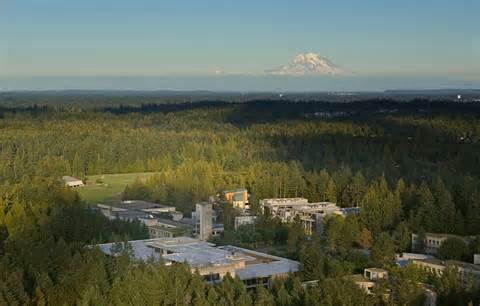
The Story
Actually, this story begins in 1964 when the Council of Presidents of Washington State Baccalaureate Institutions issued a report stating that another college was needed in the state to balance the geographical distribution of the existing state institutions.
In 1966, the Temporary Advisory Council on Public Higher Education concluded that “at the earliest possible time a new college should be authorized,” and that it be located within ten miles of Olympia, Washington. Legislation was passed stating that the campus should be no smaller than 600 acres, making it the largest campus in the state and the first four-year college created in Washington in the 20th Century.
In 1968 the name for this new institution was chosen, The Evergreen State College, and a president was named. The first day of classes began on October 4, 1971, with 1,128 students in attendance.
And the city of Olympia changed forever.
A Close Look at Evergreen
A quick glance through the curriculum of Evergreen will help us to understand how this change came to be. Bachelor of Arts degrees can be obtained in the following:
Aesthetics, African American Studies, Agriculture, Community Studies, Women’s Studies, Geography, Geology, Hydrology, Law and Public Policy, Marine Science, Maritime Studies, Native American Studies, Natural History, Outdoor Leadership and Education, Philosophy, Sociology, Sustainability Science, Theater, Visual Arts, and Zoology to name a few.
The Evergreen State College is also the home of the Longhouse Education and Cultural Center, whose public service mission is to promote indigenous arts and cultures through education, cultural preservation, and economic development.
But that’s not all. The Evergreen Organic Farm comprises 38,000 square feet, or about one acre. Produce from the Farm is sold to the Evergreen community and also at a farm-stand on campus. Proceeds from the sale of the crops are used to finance farm projects, as well as purchase seeds and equipment.
In addition, the College has 1,000 acres of land that is mostly second-growth forest and 3,300 feet of untouched beach, and this area is used for scientific field research and as inspiration for creative work.
In other words, a new culture was introduced to the Olympia area.
That was forty-three years ago.
Today……
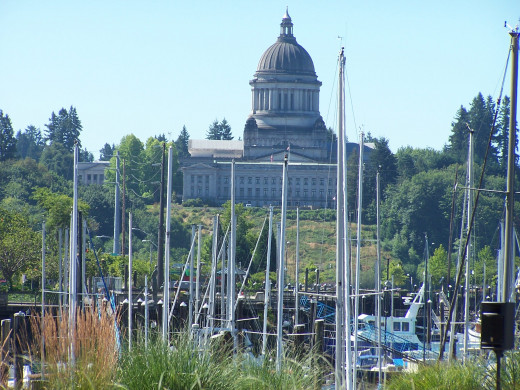
A New Olympia
My best friend’s brother attended that first class back in 1971. I remember visiting him on campus, and I clearly remember thinking at the time that The Evergreen State College was unlike any college campus I had ever seen, and I also remember saying something like….”this is too radical; it will never catch on here.”
Well just how wrong can one person be?
Those early classes that attended Evergreen fell in love with the natural beauty of the Pacific Northwest, and after graduating they decided to stay in this lovely area and make their vision of a new society happen along the shores of Puget Sound. Small farms began to appear. Sustainable agriculture became more than a catch-phrase few had heard of. Artists moved into the area, as did musicians. Concern for the environment became a priority.
Early Evergreen graduates decided to become policy makers, so they joined planning committees and commissions, and spearheaded much-needed change to an area that had suffered economically.
Those graduates got married, and had children, and those children were raised to believe in the sanctity of the earth, and to protect the environment, and they flourished in this new cultural center, and lo and behold, those children married and had babies, so that today, in the year 2014, we have many third-generation Evergreen graduates, and a new Olympia has indeed emerged.
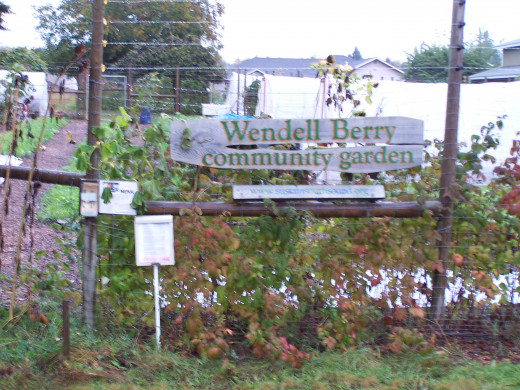
- Recycle, Reuse, and Make a Commitment to the Environment
If the effort to save this planet does not come from us, then who will it come from?
And What Does That Olympia Look Like?
I was standing in the Olympia Urban Garden and Farming Center this past weekend, talking to the owner about gardening and raising quail, and the subject of sustainable agriculture came up, and we both agreed that The Evergreen State College is Olympia, and Olympia is the Evergreen State College.
I am fully aware of how unique this city is. I have traveled through quite a few states during my lifetime, and I am in contact with writers from around the world, and I can safely say that there are few cities in the world like Olympia. There is an energy that is exciting and contagious in Olympia. There is, in Olympia, a true understanding of how important the earth is, and of our part, as humans, in keeping the earth safe and vibrant.
There is a firm belief in sustainable living here, and there is a marvelous sense of community. Drive or walk though the neighborhoods and you will spot community gardens where all share in the work and the bounty. Drive or walk through the neighborhoods and you will see vegetable gardens in front yards, vegetable gardens in backyards, and vegetable gardens in every other spare lot of land. Drive or walk through the neighborhoods and you will see neighborhood parks a’plenty, and bike paths, and hiking paths, and a general sense of happiness and contentment among the citizens.
Are there problems in Olympia? Most definitely! Homelessness is still an issue that needs to be addressed. Unemployment could certainly be lower. Still, there is hope, and there are forward-thinking people who are committed to making it all happen.
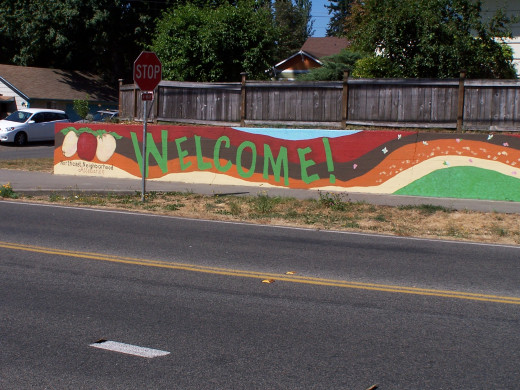
Final Thoughts
I have written often of my belief that a small group of dedicated, and motivated, people can make a huge difference in society. In 1971, that group numbered 1,128, and forty-three years later, they changed the capital city of a state.
If it happened here, and it did, could it happen where you live?
I believe it can, and I believe there are a great many people in this country who would welcome such a change….and I also believe that they are all waiting for someone else to spearhead the movement. Hopefully that wait will not be for too long in your town or city.
Sustainable living…urban gardens….edible forests….you will not see these causes and ideas promoted by major corporations, and therein lies the problems. Our society revolves around business, and business feeds government, and government passes favorable legislation for major corporations, and round and round we go.
But, on a local level, change can happen….if you want it badly enough.
Get involved. Get active. Take back your city, your government, and your way of life. Use Olympia as an example of what can happen when people are willing and eager to see positive changes in their community.
2014 William D. Holland (aka billybuc)


